How to Drink Alcohol on Keto
One of the cornerstones of an effective keto diet is making it sustainable. While you don't have to stay on keto forever, approaching it like you're going to be on it long-term will make your diet that much more effective. There's an approach to weight loss called “crash dieting”; this happens when people restrict eating to the bare minimum. They drastically cut calories and eat food that isn't very appetizing; they cut out dessert, drinks, appetizers, and anything that could tempt them to eat too many calories. This is the equivalent of holding your breath on a diet: the longer you do it, the more hungrily you'll gulp air (or food, in this case) when you go back to breathing or eating regularly.
We're huge proponents of living sustainably. Regardless of how long you plan on eating low-carb, if you approach it like you're doing it long-term, then you'll have a much healthier dieting experience. That's why we have just as many appetizer and dessert recipes as we do those for healthy main dishes. Alcohol is a big part of social life in the United States, and although minimizing the amount that you drink will undoubtedly help your dieting efforts, that doesn't mean you have to give it up entirely. The best thing to do is to understand how alcohol affects your body, how it impacts your weight loss efforts, and how to create a plan for drinking so that it has the least possible impact on your diet.
How Alcohol Affects the Body
If you've been on keto for any length of time, you're aware of the three main macronutrients: fat, protein, and carbohydrates. We minimize the amount of carbs we eat and drastically increase our healthy fats to push the body into ketosis. The body, however, treats alcohol like a fourth macronutrient–and it prioritizes it above everything else. Your body knows that alcohol, in high enough amounts, can be toxic. (Don't let this freak you out–even water can be toxic in high enough quantities.) When you drink alcohol, your digestive system will push metabolizing beer, wine, or liquor to the top of the list, which is why it can take days to convert food into fat but minutes before you begin to feel the effects of drinking.
One of the ways keto works is by momentum: the longer you stay in ketosis, the more efficiently your body burns fat. When you kick the body out of keto, weight loss pauses, and it can take a bit of time to get things started again. This is important to know for two reasons. First, minimizing the amount of drinking you do will accelerate your weight loss goals. Second, it's better to reduce the number of times you drink per week than it is to minimize the number of drinks you have. If you have a glass of wine each evening for dinner or a nightcap before you head to bed every night, you're putting your metabolism on pause every 24 hours. You can still lose weight while doing this, but it's going to take quite a bit longer than it needs to. Make each time you take a drink an intentional, well thought out choice.
What Happens When You Drink Alcohol on Keto
The good news is that the longer you're on keto, the lower your tolerance will get. Each drink will have a magnified effect, so you'll have to drink far less to experience the same results. Someone who is on a high-carb diet stores glycogen in his or her liver, which is where 98 percent of alcohol is metabolized. The glycogen slows down the speed at which the body processes alcohol, so it takes longer to feel the effects of drinking. On keto, however, you're running on ketones, so the pathway for metabolism is much less cluttered–you'll feel every drink more rapidly, but your system will also get rid of it more quickly.
General Rules for Alcohol
The first rule is to take it slow. Have one drink, wait to see how your body is taking it, then evaluate how you feel before picking up another.
Second, minimize the number of times you drink every week. Let your body build up momentum on ketosis and burn as much fat as possible.
Third, make decisions that complement your diet instead of fighting against it. Although alcohol pauses weight loss efforts, you don't want to drive your momentum the other way by loading your drinks with lots of carbs. In the following sections, we'll show you what to choose and what to avoid.
Fourth, beware of your limits. We've briefly mentioned your personal limits (i.e., how your individual tolerance can be lowered), but there are also universal limits. For example, alcohol lowers inhibitions and will increase your willingness to drink more. The best thing you can do is decide what your boundaries are before you take a sip and then stick to your guns. Have a plan and perhaps a friend who will keep you accountable.
Beer
Beer is one of the most common social drinks, and it's one you'll encounter frequently. Thirty years ago, your options would have been extremely limited; in that time, however, brewers have made phenomenal strides in creating low-carb ales and lagers that have very similar taste profiles to the original brews. Some of the best options we've found include:
- Bud Select 55: 55 calories, 1.9 carbs
- MGD 64: 64 calories, 2.4 carbs
- Rolling Rock Green Light: 92 calories, 2.4 carbs
- Michelob Ultra: 95 calories, 2.6 carbs
- Bud Select: 99 calories, 3.1 carbs
- Miller Lite: 96 calories, 3.2 carbs
- Natural Light: 95 calories, 3.2 carbs
- Michelob Ultra Amber: 114 calories, 3.7 carbs
- Coors Light: 102 calories, 5 carbs
- Amstel Light: 95 calories, 5 carbs
- Bud Light: 110 calories, 6.6 carbs
While you should pay attention to both calories and carbs, remember that carbs are going to have a more significant impact on whether you stay in keto than the number of calories you drink. While a Michelob Ultra has the same calories as an Amstel Light, it has half the carbs. All of these are keto-friendly options, however.
Wine
There are several ways you can categorize wine: white and red, dry and sweet, chilled and room temperature. For dieting purposes, the most important thing you should pay attention to is how sweet a wine is. Moscato, sweet riesling, port, and sauternes are going to be off the menu as long as you're low-carb: these will pack on the pounds faster than you can say “a spoonful of sugar.” However, there are many drier wines you can experience that will have a much less profound impact on your metabolism.
For red wine enthusiasts, consider the following (nutrition facts are per 5-ounce serving):
- Cabernet Sauvignon (this is our favorite–full-bodied, dry, and tart!): 120 calories, 3.8 carbs
- Pinot Noir: 121 calories, 3.4 carbs
- Merlot: 120 calories, 3.7 carbs
If you prefer white wine, here are a few options:
- Pinot Grigio: 122 calories, 3.2 carbs
- Sauvignon Blanc: 122 calories, 2.7 carbs
- Chardonnay: 118 calories, 3.7 carbs
- Riesling: 118 calories, 5.5 carbs
- Champagne (remember that this is low in alcohol content, so you’ll need to drink more): 96 calories, 1.5 carbs
Another recommendation is to focus more on the opportunities you have than the ones you're giving up. While you can't consume as much alcohol, you can use this time to become more of a wine connoisseur. Research how to taste wines and concentrate on developing a more sensitive palate. Enjoy the full experience and pick up a few skills that will impress your friends and family.
Liquor
As a general rule, clear liquors in the 40 percent alcohol (80 proof) neighborhood are keto-friendly. These can include:
- Brandy
- Cognac
- Gin
- Rum
- Scotch
- Tequila
- Vodka
- Whiskey
If you've never experienced whiskey on the rocks or with a splash of water, give it a shot to keep your calories low. Perhaps you can explore what heated brandy in a snifter is like. For many of us, however, the thought of drinking straight liquor without a mixer is a bit too much. Mixers are, unfortunately, often loaded with sugar and can drastically increase the number of carbs you consume. Fortunately, there are some solid alternatives.
Alternate Mixers
Mixing drinks is an art, and learning to do it low-carb is an excellent skill to learn. Some low-carb mixers that can help you out on this journey are:
- Diet tonic water
- Diet flavored bubbly water
- Seltzer water (flavored or unflavored)
- Stir in some Stevia, or erythritol if you’re drinking at home!
- Mio Water Enhancement
- Zero-sugar drinks (e.g., Redbull Sugar-free, Bai5 sweetened with erythritol, Diet Soda, Monster)
If you have a favorite mixer you just can't give up, find a way to make it low-carb. For example, create your own lime margarita mix with lime juice, water, and erythritol.
What to Avoid
Other than with beer, few people ask for nutrition facts for alcoholic beverages. This makes hidden sugars easy to miss. Generally speaking, you'll want to avoid all of the following while on keto:
Sweet Wines
- Moscato
- Port/Sherry
- Dessert Wines
- Sangria
- Zinfandel
Sugary Mixers
- Triple sec
- Whiskey sour mix
- Blue curaçao
- Sugary syrups
- Grenadine
- Frozen margarita mixes
Mixers and Add-ons
- Flavored alcohol (e.g., coconut rum, peach schnapps, Bailey’s)
- Juices (e.g., cranberry, orange, pineapple, tomato)
- Fruit add-ins (e.g., cherries, berries, pineapples, oranges)
- Syrups (e.g., fudge, whipped cream, fruit-flavored syrups, sweet creams, coconut cream)
How to Avoid and Treat Hangovers on Keto
If you drink at all, eventually you'll drink too much. That doesn't mean you'll end up blacked-out on a street corner somewhere, but it could mean that you have a bit of a headache the next morning. The root of being hungover is caused by dehydration, pure and simple. You'll find numerous hangover remedies online, and you could probably solicit even more from your friends, but fancy concoctions and the hair of the dog will only, at best, temporarily relieve the symptoms slightly. The best thing you can do is drink water, then more water, then a bit more to be safe.
You don't have to wait until a hangover presents itself, though. Make sure you're hydrated before you start drinking, then have a glass of water between each drink at the club or bar. This will also help you pace yourself and lessen the amount you end up drinking.
There's nothing wrong with consuming alcohol on a low-carb diet. Just make sure that you know how it's going to affect a body and make intentional decisions: if you do this, you can thoroughly enjoy yourself while minimizing the impact it has on your diet.
References
- Tabakoff, B. “Alcohol Alert.” National Institute on Alcohol Abuse and Alcoholism No. 28 PH 356 April 1995. http://pubs.niaaa.nih.gov/publications/aa28.htm
- Bahadori, B, et al. “A “mini-fast with exercise” protocol for fat loss.” Med Hypotheses. 2009 Oct;73(4):619-22. doi: 10.1016/j.mehy.2008.09.063. Epub 2009 Jul 3. https://www.ncbi.nlm.nih.gov/pubmed/19577377
- Gee, C. “Does alcohol stimulate appetite and energy intake?” Br J Community Nurs. 2006 Jul;11(7):298-302. https://www.ncbi.nlm.nih.gov/pubmed/16926710
- Sonko, BJ, et al. “Effect of alcohol on postmeal fat storage.” Am J Clin Nutr. 1994 Mar;59(3):619-25. https://www.ncbi.nlm.nih.gov/pubmed/8116538
NUTRITIONAL DISCLAIMER
The content on this website should not be taken as medical advice and you should ALWAYS consult with your doctor before starting any diet or exercise program. We provide nutritional data for our recipes as a courtesy to our readers. We use Total Keto Diet app software to calculate the nutrition and we remove fiber and sugar alcohols, like erythritol, from the total carbohydrate count to get to the net carb count, as they do not affect your blood glucose levels. You should independently calculate nutritional information on your own and not rely on our data. The website or content herein is not intended to cure, prevent, diagnose or treat any disease. This website shall not be liable for adverse reactions or any other outcome resulting from the use of recipes or recommendations on the Website or actions you take as a result. Any action you take is strictly at your own risk.
- What Are Net Carbs? - April 29, 2020
- The Most Comprehensive Keto Alcohol Guide - April 28, 2020
- How to Measure Body Fat Percentage - April 26, 2020








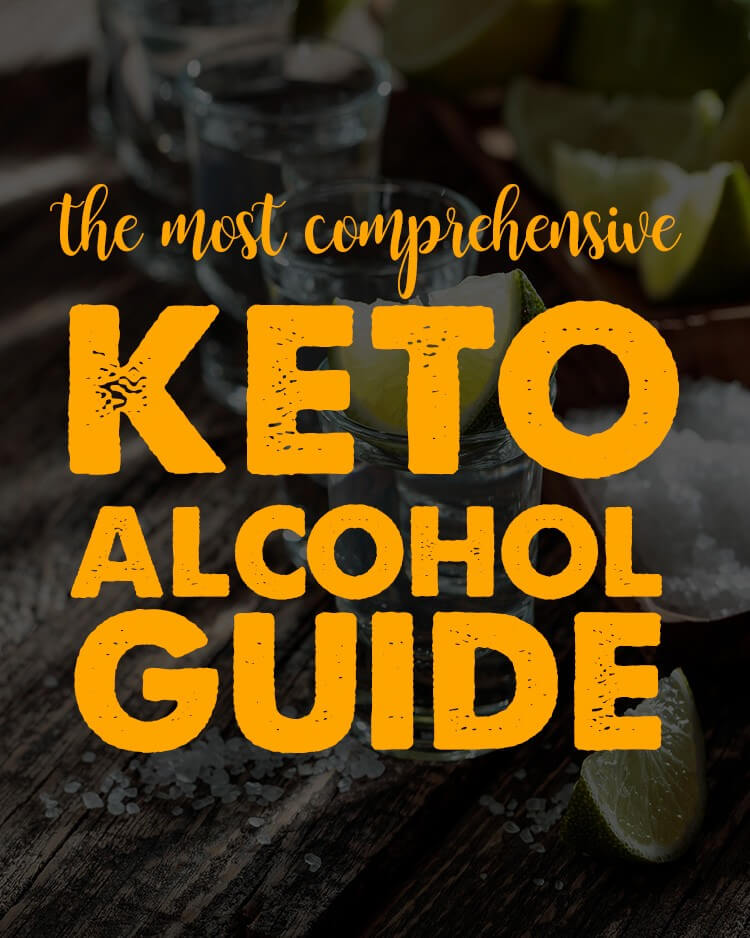
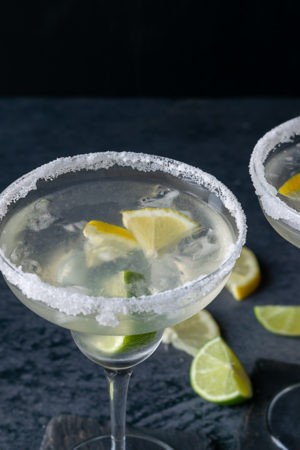
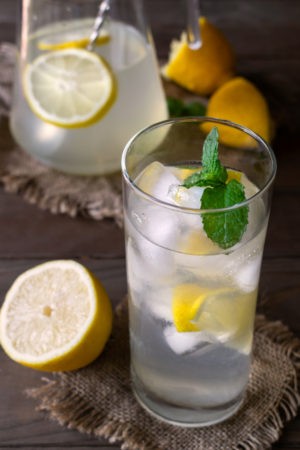
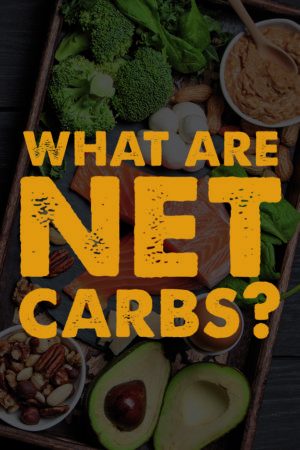

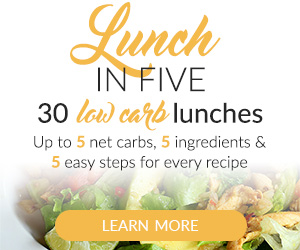
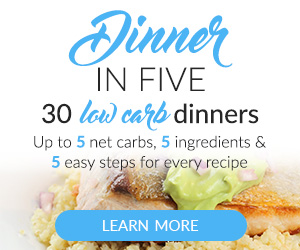




















Comments (2)
How about hard seltzers like White Claws or Trulys? I know they are low carb but they are made with cane sugar and I think that also might through me off Keto.
We drink them in moderation 🙂 they’re so low in sugar that it shouldn’t hinder your keto diet!